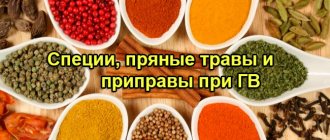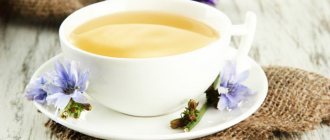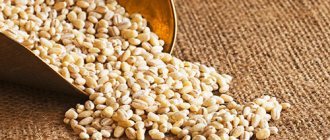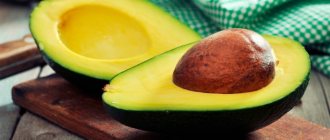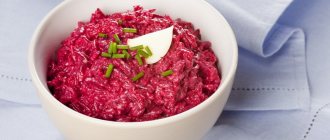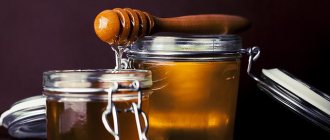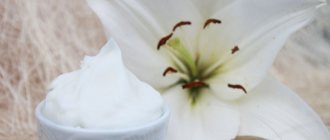During lactation, it is important for a woman to drink enough fluid to maintain water balance in the body and provide nutrition to the baby.
When drinks allowed during lactation, which have become habitual, become boring, and you have to wait a while with some, ginger tea will come to the rescue during breastfeeding. This drink can usefully diversify a nursing woman’s menu, but what properties does it have and when can you try introducing it into a nursing mother’s diet?
Is it possible to take ginger during breastfeeding and input rules
Consumption by nursing mothers is possible:
Condition No. 1
– No allergies (skin rash, itching, etc.). Once the baby is 1 month old, the nursing mother can eat ginger, use it in recipes, and drink tea/water with it. The introduction of the product is limited to one serving (start with water with a couple of cloves of ginger). Two slices equal ~10 grams of product.
If your child has reactions, give up the product for a month and after this time, try again, the serving size should be exactly the same, no less.
Condition No. 2
– Absence of any problems with the gastrointestinal tract (presence of gastritis, ulcers, indigestion and others). When the child reaches one month, try entering the amount specified in Condition No. 1.
If there is a negative reaction in children, we refuse the product and try to introduce it again no earlier than in a month.
Using the product as a treatment
Ginger is used as an anti-inflammatory, antiviral, analgesic, and disinfectant. The benefits of the product have been proven by many years of experience in its use.
During the period of infections and flu, a healing root simply must be in every mother’s medicine cabinet. The medicinal components and essential oils that make up the root are easily absorbed into the mucous membrane, help reduce the influence of harmful microorganisms, and prevent the spread of infection.
A warming ginger drink, rich in many beneficial substances, such as vitamins C, B1, B2, A, microelements: phosphorus, calcium, magnesium, iron, zinc, sodium and potassium, is effective in the treatment of sore throat, cough, runny nose, and is also prophylactic against infectious diseases.
We suggest you read: Is it possible to store boiled beets in the freezer?
For lactostasis
Lactostasis is a problem that a nursing mother has had to face at least once. But ginger root will help relieve milk stagnation. For this:
- the spine is peeled and grated;
- the ginger mass is poured with hot water, cooled to a temperature of 36-37 degrees;
- terry cloth is soaked in the paste, wrung out, and applied to the sore spot;
- cover the rest of the infusion with a lid so that the mass does not cool down;
- as soon as the compress stops heating, place the towel in the broth again and place it on the chest.
Repeat the process for 10 minutes. Then you need to completely express the milk by attaching the baby or using a breast pump. The complex of procedures is completed with a cold compress made from curd mass. Repeat the procedure three times a day. If no improvement is noticeable 24 hours after using the ginger compress, consult a doctor for qualified help.
If a nursing mother is taking medications, then ginger should be introduced into the diet with caution, because the product does not combine well with:
- sugar-lowering agents;
- tablets that lower blood pressure;
- drugs to reduce blood clotting;
- antiarrhythmic drugs;
- cardiac stimulants.
The product can be combined with almost any medication, but there are exceptions. Ginger should NOT be used when taking:
- sugar-lowering drugs;
- medications to lower blood pressure;
- blood thinners that reduce blood clotting.
It is not advisable to use ginger before taking medications against arrhythmia and for cardiac stimulation - the root vegetable enhances their effect.
Reason to stop using
One of the negative properties of the root is irritation of the stomach lining. This can occur due to consumption in any form: fresh, pickled, dried. The product should be completely removed from the diet when the child has gastrointestinal diseases.
During breastfeeding, ginger is prohibited in case of gastritis, high blood pressure, stomach ulcers, liver disease, hemorrhoids. Bleeding also imposes a ban on the root, due to decreased blood clotting.
On sale you will find: fresh, pickled and dried ginger. Breastfeeding women are allowed to consume any type, except pickled.
Contraindications
Gastritis or ulcer - ginger irritates the mucous membrane.- Hypertension – the root vegetable has the property of increasing blood pressure (read about the effect of ginger on blood pressure here).
- Allergic reaction to the product.
- Any bleeding - ginger root thins the blood, for the same reason it should not be used if blood clotting is poor.
- Colds with elevated body temperature.
You can find out more about contraindications to the use of ginger in another article.
You should avoid consuming ginger in a number of cases:
- for gastrointestinal diseases;
- high temperature, fever, burns;
- people with liver diseases, gallstones;
- acute, chronic kidney diseases, cystitis;
- individual intolerance to the product, allergies.
https://www.youtube.com/watch?v=hCNkPiVEYuA
You should not use the root in any form:
- if the child is restless and does not sleep well;
- due to its blood thinning properties, it cannot be used for hemorrhoids, bleeding and menstruation;
- at elevated temperature of the mother or child;
- for hypertension;
- for stomach ulcers.
With reasonable, moderate consumption, the spice will help improve the mother’s well-being and will not harm the baby’s health.
Tags: feeding, breastfeeding, ginger, pickling, can
About the author: admin4ik
« Previous entry
Features of administration during lactation
This topic still causes a lot of discussion among doctors and there is no consensus yet. If a woman consumed ginger during pregnancy, then the baby should not have any negative reactions during breastfeeding. However, start taking it carefully, in very small portions, with breaks of several days (there should be enough time to track the child’s reaction to the product). If you notice hyperactivity and restlessness in your child, postpone the use of ginger to a later date.
Ginger can contribute to the appearance of diathesis. All of the above dangers have passed you, then feel free to drink tea with ginger during feeding. It is not only tasty, but also popular among mothers as a means of losing weight and getting rid of waste and toxins. For a more pronounced effect, tea should be drunk before meals.
It must be remembered that the root of the plant significantly changes the taste of milk. Therefore, after weighing all the pros and cons, assessing the condition of the baby, a woman during breastfeeding makes her own decision whether to include ginger root in her diet. Pediatricians advise starting no earlier than the child turns 6 months old.
In what form is it preferable to consume the root?
Ginger is a spice used not only in cooking, but also in homeopathy or traditional medicine.
Girls who, before pregnancy, included the product in their diet, as a seasoning for meat, fish or as an additive to tea, are wondering whether or not they can consume the product during breastfeeding, whether it will harm the baby, and how the root is useful. However, such symptoms can also appear due to other factors, for example, teething, introduction of complementary foods, or illness of the child.
Ginger root is a versatile product that can be consumed fresh, pickled, or dried. And also add to baked goods, tea, salads, sauces, meat, fish, vegetables, first courses.
Fresh
When consuming the product in its natural form, the main thing to remember is that the root has a burning, pungent taste. Therefore, it is preferable to grate the peeled root and mix it into dishes or teas. Thus, the benefits of the product will be preserved, and the dishes will acquire a piquant taste and aroma.
You can also put a piece of ginger under your tongue and suck it like candy.
Positive sides:
- the product cannot be heat treated, retaining all its usefulness;
- basic preparation;
- a huge list of uses of the product - both as a medicine and an ingredient in cooking.
Minuses:
- pungent taste;
- presence of contraindications.
Pickled root is a delicious treat, especially popular in Japanese and Chinese cuisines. Recently, the delicacy began to be prepared in Russia, then used as an independent snack or a component of appetizers, meat dishes, and extraordinary side dishes.
Pros of use:
- the product turns out very tasty - a real delicacy;
- pickled treats diversify the diet, bringing maximum benefits;
- minimal processing preserves most of the nutrients in the root;
- there are fewer contraindications to consuming pickled delicacies compared to fresh ones.
In tea
Ginger drink is a remedy for many diseases, especially useful for digestive problems, excess weight, and is a panacea for sore throats and persistent coughs. You can prepare tea using dried or fresh tea, or purchase ready-made tea bags at a pharmacy or store.
Advantages:
- the most pleasant taste and aroma;
- ease of preparing the drink;
- an effective remedy for getting rid of many diseases.
Minuses:
- the need to comply with the exact quantity of components, dosage and preparation technology. Otherwise, the drink may not have the necessary effect, be ineffective, or cause harm.
- Ginger is considered a lactogenic agent - it can be an indispensable remedy if the child does not have enough milk.
- A ginger compress helps get rid of lactostasis (however, you should remember that if it doesn’t get better within a few days, you need to consult a specialist).
- As a bitter seasoning, ginger changes the taste of milk, so it is better to introduce this product into the diet gradually, otherwise the baby may refuse milk.
- Boosting immunity.
- Tonic effect.
- Ginger tea successfully copes with colds due to its high vitamin C content, but only if there is no fever.
- Accelerates metabolism - ginger can be used to burn fat and lose weight, and it is also low in calories.
For the baby
- Decreased salivation.
- Boosting immunity.
- The root has a tonic effect, so it is better to monitor the baby’s reaction; he may become restless, it is more difficult to fall asleep - then the use of ginger will have to be limited.
If the root vegetable was not consumed during pregnancy, then during lactation it is better not to include it in the diet.
When feeding a baby with breast milk, the spice brings only benefits:
- helps improve immunity;
- relieves fatigue;
- improves lactation;
- strengthens the skeletal system;
- promotes weight loss;
- relieves stress;
- Helps improve the well-being of the child and mother.
The root contains many useful elements necessary for a young mother, especially after childbirth.
Why nursing mothers should use the spice:
- The root cleanses the body of accumulated toxins. As a result, the milk reaches the baby more healthy and purified. Therefore, the baby will have fewer problems with colic;
- The plant contains a large amount of iron. Therefore, the seasoning will help cope with a common disease of young mothers - anemia.
When breastfeeding, mothers often face the problem of lack of milk. To restore and extend the lactation period as long as possible, medicinal plants are used. Ginger is a natural lactogenic agent that helps cope with the problem.
If the mother has hyperlactation, then you should not overuse the root, otherwise even more milk will come in.
To increase the amount of milk, ginger is chewed with cookies, brewed tea or used in salads. The benefits of ginger will only be if the norm is observed. Excessive consumption can harm the baby and mother.
Impact on the child
All foods eaten by the mother go to the baby with milk. Limited consumption of the root will not affect the baby’s condition in any way. If a rash appears, you will have to give up the product for several weeks, and then try to reintroduce it into your diet.
The child is constantly growing and developing, and along with it his digestive system is strengthening, so the risk of allergic reactions is reduced to zero.
Positive effects on babies:
- immunity increases;
- salivation decreases.
It is better to include the root in the mother’s diet in the first half of the day. The spice has a tonic effect, so in the evening it can cause anxiety in the child and make it worse for him to fall asleep.
Like any new product, spices are introduced into the diet carefully. The first maximum portion is 3 grams. If the reaction is positive, the amount is gradually increased.
Like all new products, it will have to be introduced in the morning, so that there is enough time to observe the baby’s reaction. If a child develops an allergy in the form of a rash, red cheeks or loose stools, then further use will have to be postponed for some time.
You can try the product for the first time 2 months after birth, provided that the mother has eaten the product before. If mommy decides to try the spice for the first time, then it is better to postpone acquaintance with the root until the baby is six months old.
Ginger during breastfeeding is a very controversial product. On the one hand, it is able to increase breast milk production, protect mother and baby from viruses and bacteria, and improve digestion. On the other hand, it can cause stomach problems, allergies and increased nervous irritability. For these reasons, ginger should not be consumed in the first weeks of a newborn's life.
Ginger can be eaten in very modest portions. If it is a fresh root, then 1-2 cloves, if ground - 1-2 pinches, added to main dishes. You can take ginger only in the first half of the day, as its tonic effect can cause overexcitement in the child and, as a result, poor sleep. Ginger can change the taste of breast milk, which is another reason to handle it carefully.
We invite you to read: Covering blackberries for the winter: covering times, secrets, tips
The baby may refuse the breast if he does not like the new taste of milk
During breastfeeding, the spice can help the mother improve the amount of milk produced when there is a shortage. Ginger stimulates the movement of fluids in the body. And also the work of many glands, including mammary glands. This is why the breasts fill with milk faster, and the baby does not feel a lack of food. But this doesn't always happen. Not every mother experiences such a wonderful property of the root.
Can children have ginger tea?
In what cases do doctors say no to the use of ginger?
- If the child was born premature.
- In the case where the mother has never eaten it before.
- When the newborn’s digestive system is too immature, which malfunctions, causing colic, spasms, indigestion, irregular bowel movements, etc.
- If mother and child are prone to allergies.
The root can be used externally without harm to health. It copes well with such an unpleasant condition as lactostasis. To relieve pain and lumps, you can apply warm compresses of brewed fresh ginger root to your chest. It will relieve inflammation and swelling, soften tissues, help remove excess fluid, and relieve swelling.
How can ginger harm babies? The first thing worth talking about is allergies. It can appear on the skin in the form of diathesis, and if it systematically enters the child’s gastrointestinal tract, it can result in atopic dermatitis and irritation of the gastric and intestinal mucosa. The most commonplace may be a simple refusal to eat due to a change in the taste of milk. Some children may react to spice with irritability, crying, and poor sleep.
If the mother regularly consumed ginger before and during pregnancy, there is a chance that the baby will take ginger well and react positively to it, because an additional source of increased immunity will not hurt anyone.
Ginger is a wonderful natural helper.
- It helps the immune system fight infection. A fair amount of vitamin C makes it an indispensable assistant in the fight against colds and ARVI.
- Normalizes the functioning of the gastrointestinal tract and urinary system. By accelerating the production of gastric juice, it helps cope with diarrhea, indigestion, and flatulence.
In addition, it is effective against attacks of nausea (but only if it is caused not by acute poisoning or gastritis, but, for example, by motion sickness). This is just a godsend for people suffering from seasickness. While swimming, you can drink a ginger drink or suck on a candied piece of ginger.
- Acceleration of metabolic processes. Fresh root is considered a low-calorie product (only 80 Kcal) and also helps burn fat and lower blood cholesterol levels.
- Strengthens bones by delivering calcium and phosphorus to the body.
- Strengthens the nervous system, activates the brain.
- “Cleans” blood vessels from harmful cholesterol plaques, simultaneously thinning the blood. Systematic use of ginger root is an excellent prevention of heart disease.
Effect on lactation
Many medicinal plants, in any form, often affect the level of milk production. It has been proven that ginger has a natural lactogenic property, so it is necessary to take this point into account when addressing dietary issues during breastfeeding. After all, it is more difficult to cope with hyperlactation than with a lack of milk. If your child does not have enough milk, use the following recipe: add 2 tablespoons of ginger to hot water and consume no more than 5 times a day before feeding. If the situation does not change within 10 days, then you should pay attention to other ways to improve lactation.
When there is enough milk, the baby is always full and gaining weight according to norms, there are situations when it is necessary to make a certain supply of milk so that the mother can leave home for a short time. For effective pumping, eat pieces of fresh ginger root along with cookies or in various salads. Expressing works best after a shower or compress.
Lactostasis and ginger
Lactostasis is stagnation of milk in the mammary glands, resulting from their incomplete emptying.
Recipe: Chop fresh ginger and pour boiling water over it. Then dip a towel into the mixture and then place it on your chest. After a few minutes, the compress will cool down and cease to have a warming effect; put it back into the infusion. The action should be repeated for about 10 minutes. Then the breast is expressed, the baby is placed on it and the complex is completed with a cool (for example, cottage cheese) compress. Repeat the procedure 3 times a day. After a period of time there is no improvement, the body temperature is still elevated, then do not delay going to the doctor for a second. Stagnation of milk causes unpleasant consequences, like mastitis.
Having analyzed all the above information, we conclude that ginger root will be a useful product during breastfeeding. But you must always know when to stop and remember the contraindications for mothers and children.
Is it possible or not?
A nursing mother can use ginger root during lactation. The plant will help:
- improve breast milk production;
- prevent lactostasis;
- increase vitality and get rid of chronic fatigue, which often occurs in women when caring for a baby;
- increase resistance to stress;
- strengthen the immune system;
- Reduce the weight gained during pregnancy faster.
Ginger also has a positive effect on the baby’s body. Studying reviews of breastfeeding women who drank ginger tea or added spice to their food, we can conclude that these women’s children get sick less, sleep better and suffer less from allergies.
Ginger is useful during breastfeeding, but not everyone is allowed to use it. The root is contraindicated in the following cases:
- Stomach diseases. The spice irritates the mucous membrane, causing exacerbation of gastritis or peptic ulcer.
- Haemorrhoids. Hemorrhoids often first appear during pregnancy, and childbirth provokes an exacerbation of the pathology. The root can cause bleeding hemorrhoids.
- Early postpartum period. In the first month after the birth of a baby, a woman releases lochia, the placenta implantation mark heals, and the uterus shrinks to normal size. Ginger thins the blood, so taking the root immediately after childbirth can cause uterine bleeding.
A relative contraindication is that the woman has not tried the product before. In this case, she does not know how it will affect the body. To exclude possible adverse reactions, it is better to postpone trying the spice until after breastfeeding.
Composition and properties of ginger
Ginger is popularly considered one of the most interesting spicy spices. The composition contains a wide range of vitamins, microelements and amino acids. Ginger is one of the top 3 foods for antioxidants. Has many useful properties:
- helps against nausea (especially for those with motion sickness);
- improves appetite and digestion, actively stimulates the gastrointestinal tract;
- helps improve immunity;
- actively used in the treatment of colds;
- helps normalize blood pressure (especially treats low blood pressure);
- ginger essential oil is used to stabilize psycho-emotional problems;
- reduces blood sugar levels;
- useful for severe headaches and joint pain;
- reduces allergic manifestations.
Ginger tea also speeds up metabolism and contains few calories, which helps the weight loss process. It is especially useful for young mothers who, of course, strive to get back into shape as quickly as possible, but do not have the opportunity to go to a fitness center or gym.
The substance gingerol gives ginger its special taste. Interesting fact: the drier the root, the higher the pungency. But even despite the abundance of benefits, the product is still a medicine, so it is recommended to use it only after consulting a doctor.
